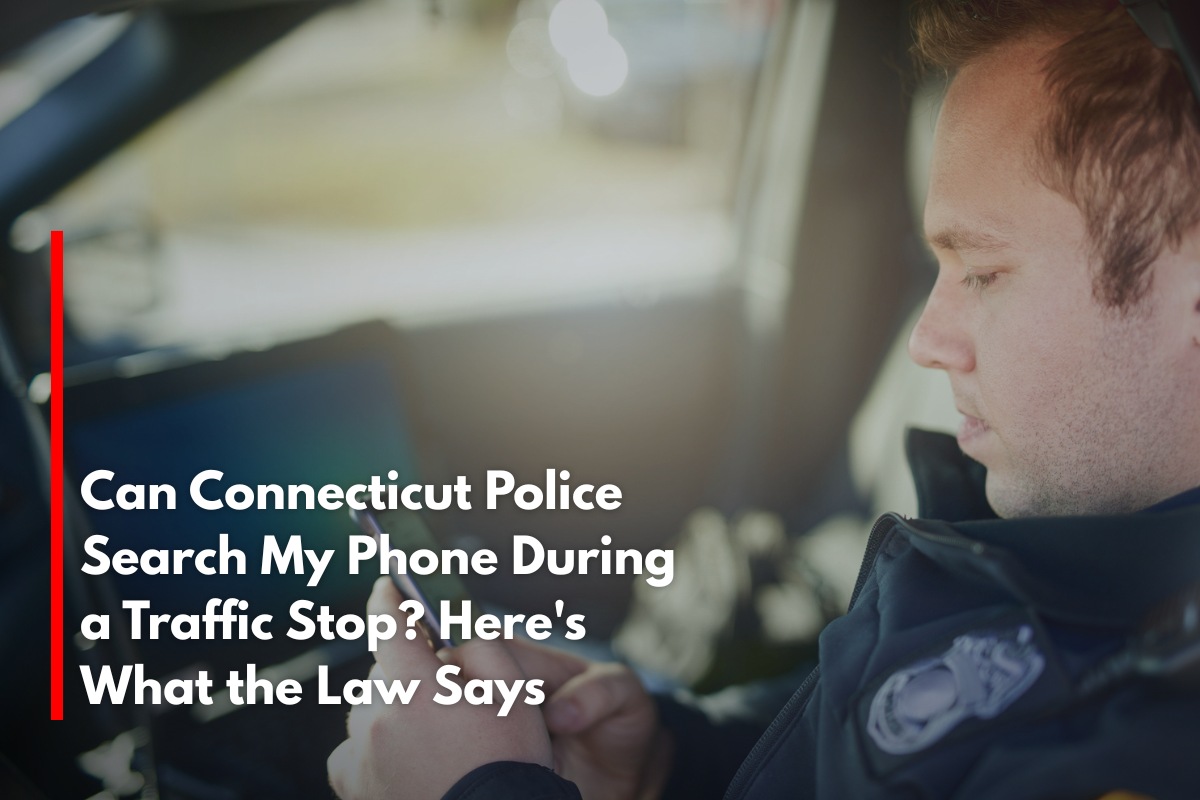In Connecticut, the question of whether police can search a person’s phone during a traffic stop is governed by specific legal protections primarily under the Fourth Amendment, which guards against unreasonable searches and seizures. Here’s what the law says about phone searches by Connecticut police during traffic stops.
Fourth Amendment Privacy Protections
Under the U.S. Constitution’s Fourth Amendment, police generally must obtain a warrant based on probable cause before searching a person’s phone. This protection recognizes that cell phones contain vast amounts of personal and sensitive information, from messages and photos to locations and passwords, far beyond what could be found in physical searches of vehicles or persons.
Limitations on Phone Searches During Traffic Stops
In Connecticut, the rules for searches during routine traffic stops reinforce this warrant requirement. Police cannot search a driver’s phone simply based on the traffic stop itself or without additional lawful justification such as probable cause. Unlike a search of the vehicle which may be subject to some exceptions, phones are protected by heightened privacy under current law.
Consent and New Police Accountability Laws
Since October 2020, Connecticut law prohibits police officers from even asking for consent to search during routine traffic stops. Officers may no longer circumvent the need for probable cause by requesting permission to inspect phones or vehicles. If a driver voluntarily and unpromptedly offers consent, that consent may be valid, but unsolicited consent during traffic stops is rare.
Exceptions: Arrest and Exigent Circumstances
Special situations, such as if a driver is arrested or if there are emergency “exigent circumstances,” allow police to search a phone without a warrant in some cases. For example, if police reasonably believe accessing the phone is necessary to protect life or prevent destruction of evidence, a search might be allowed. These exceptions are narrowly defined and require strong factual justification.
What to Do If Stopped
Drivers should know their rights during traffic stops. They are not required to consent to searches, including of their phones. Politely refusing consent and clearly stating the desire to remain silent or speak to an attorney can protect rights during encounters. If officers conduct an unlawful search, evidence obtained may be suppressed in court.
Connecticut law protects citizens against unwarranted searches of their phones during traffic stops. Police cannot search a phone without probable cause or a warrant and are barred from requesting consent during routine stops. Exceptions exist in cases of arrest or emergencies, but these are strictly controlled. Knowing and asserting these rights helps ensure privacy and limits unlawful intrusions during what can be stressful police encounters.
Sources
(https://www.acluct.org/en/know-your-rights/know-your-rights-stopped-police-connecticut)
(https://www.cga.ct.gov/2024/rpt/pdf/2024-R-0119.pdf)
(https://www.connecticutcriminallawyerblog.com/know-your-rights-during-a-connecticut-police-stop-or-arrest/)
(https://portal.ct.gov/dcj/programs-and-services/traffic-stop-complaints)
(https://www.connecticutcriminallawyer.com/blog/can-the-police-search-my-car-during-a-traffic-stop-in-connecticut)











